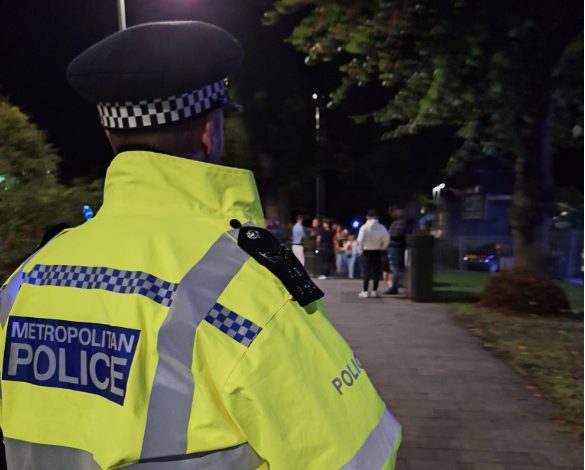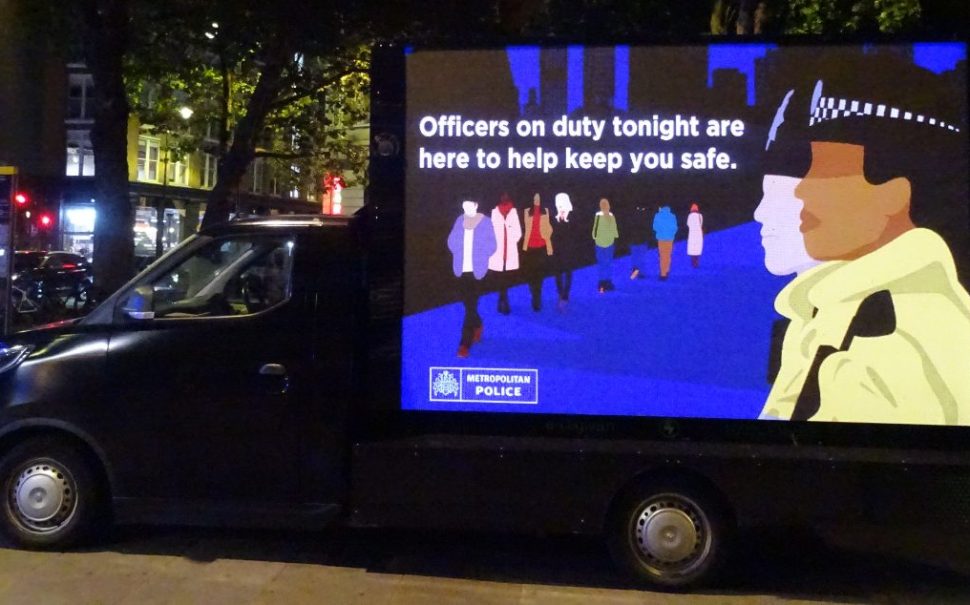The Met police patrolled the streets of Bexleyheath during Freshers’ week as part of a commitment made alongside campaign groups to combat spiking.
The number of spiking offences in London have more than quadrupled in the last five years with an average of 26 allegations being made a week in 2023.
To halt this rise, the Met have partnered with campaign groups Stamp Out Spiking, Drink Aware and the Safer Business Network to raise awareness and are engaging in targeted safeguarding action during university Freshers week.

Founder and CEO of Stamp Out Spiking Dawn Dines said: “Anything we can do to raise awareness on this issue for people, especially students who are away from home for the first time, has got to be good news.
“We need the police to be taking these crimes more seriously.”
Dines founded Stamp Out Spiking in 2019 but has been campaigning for over 20 years.
Dines’ drink was spiked while abroad and came home to find the problem had become prevalent in the UK and was affecting her friends.
Dines’ said: “We were some of the lucky ones, if we could call it that, we didn’t get raped or robbed or filmed.
“I came home, and it started happening to my friends, my family, just ridiculous, nobody was doing anything about it.”
Last month, officers carried out tailored tactics in an effort to disrupt offenders, which included swabbing toilets for drugs, giving students spiking prevention materials and patrolling known crime hotspot areas.

Police Sergeant Steve Watson, who led the Bexleyheath operation, said: “I’m glad that increased police presence and speaking with students ensured a tame evening with minimal crime.
“We remain focused in removing predators who intend to inflict harm onto others off our streets.”
Last month saw Freshers’ Week in full swing across the UK as new students arrived at university campuses and were welcomed with plenty of social events.
Second year psychology student at Roehampton University, Aoife, said of the recent police action: “It makes you feel safer but it doesn’t necessarily mean that you’ll have eyes on you at all time, I guess it’s a step forward.”
Fellow psychology student at Roehampton, James, recounts a friend’s experience as the victim of spiking on a pub away from the university campus, when a man who was part of the group she was with slipped something in her drink.
James said: “Her friend said after the night ‘oh my god, that was so fun’, and she was like ‘no, it really wasn’t’.”
This incident went unreported, with James’ friend only resolving not to go out with the same crowd again.
A University of Roehampton spokesperson said that internal campaigns are run throughout the year to make students aware of safety concerns including spiking, which include work with local police.
The university also has a bystander team who attends all university events to prevent sexual harassment and assault.

Stamp Out Spiking estimates that 97% of incidents go unreported.
Dines believes that there still exists a stigma around being spiked, and that a feeling of embarrassment and guilt can prevent people from reporting the crime to police.
In a few weeks Dawn will be in Westminster running an information day for MPs, as part of her ongoing campaign to update the law on spiking.
Dawn said: “We need updated legislation.
“We need funding from the government to ensure that people who work in the night-time economy are adequately trained.
“We need resources to go around different pubs for protected drink covers.
“There’s so much.”
Dawn began her campaigning work creating anti-spiking drink covers known as ‘Stop Topps’, a company which now helps fund Stamp Out Spiking and supplies anti-spiking materials to bars, pubs and universities.





Join the discussion